Pablo Andrés Wunderlich Padilla's Blog, page 2
October 1, 2019
Hello World!
Welcome to my website, where you’ll find my latest work, and coffee stuff. I’m a coffee enthusiast. I roast at home with a Behmor 1600 Plus coffee roaster. I roast coffee to drink the freshest coffee possible. With those sweet aromas I get inspired to write my work. Check out my work, sign up, take a stroll and get involved.
 http://bit.ly/LyricofTheWind
http://bit.ly/LyricofTheWind http://bit.ly/GalacticCrusadeTrilogy
http://bit.ly/GalacticCrusadeTrilogy
June 6, 2018
Home
February 16, 2018
Wreck-it Ralph
Watching this movie made me fill-up with nostalgia and tears, as characters of my youth were vividly brought to life. The most surprising part, to me, was the consistency of each character with the graphics-game-play with the console and year of publication of each game. From PacMan to King Koopa, I was transported to my early days and enjoyed very much seeing these guys come to life.
Puns, jokes, references, this movie has a real punch-in-the-face sense of humor, making you laugh out loud.
The in-depth message of the movie is also cleverly interwoven. Ralph desperately seeks to find “himself” and try to become what he thinks he must become to feel like he matters. Jealous of Fix it Felix Jr., Ralph tries to find a medal so he may receive the common praise from the neighbors. The journey Ralph goes through is called going “Turbo”, when a character invades another game and literally crashes it. Ralph’s journey teaches him that the real medal is the one you find within, by understanding who you are and the importance of accepting yourself as such:
“There is no one else I’d rather be than me.”
Absolutely amazing.
Fight Club
Having watched the movie was the strongest reason why I didn’t feel the need to read the book. It always bumped in my mental vault, the fact that someone had come up with such a powerful and compelling idea, executed it impecably on screen (Norton’s and Pit’s acting was phenomenal; perhaps Pit’s finest performances). I finally gave the book a try. I was surprised to see that the book was short. It didn’t put me off at all, it was just an observation, especially after having watched the movie I expected a lengthier book.
As I read through the pages I was aware of the nuances with the movie, something that made my neurons glitch from time to time, for I expected one thing, yet found something else. Yet, Palahniuk’s mastery of his unique style and narrative kept me reading and reading, constantly trying to decipher why the writing style was so good and so bold and so… damn original.
The story itself is strong, consistent to the bone and detail oriented without being overwhelming. I figured Fight Club was very successful because it defined a putrid, rotten world that exists within the human realm. Fight Club gave this world a face, a personality, a tangible morphology we could finally grasp. This world occupies the mind of the bluest, the raw material of hatred towards the organized, paved by those who seek to control through the creation of rules that determine a beings reality. This reality has a big blind-spot, and the world Palanhniuk described in Fight Club defined this blind-spot and exploited it. This blind-spot is an individual’s need to feel unique, and yet, the opposing desire to feel he is part of a movement, a group, to be part of a collective. To be part of Fight Club one had to slay one’s reality, to lay naked midst the ugly and emerged reborn, only to join a new set of dogmas. This is portrayed as the idea of propagating organized-chaos, an idea that spread through the mediocre like a virus. The virus lived among society cloaked under the veil of working men, men who seemed to follow a set of social rules; the virus unveiled during the night, during Fight Club. An integrant of Fight Club was a menacing soul in search of freedom, from social expectations and the boxed-in sensation felt by binding rules of how one must supposedly behave midst peers. The soul within Fight Club sought freedom, even from itself, only to be lured by its desire to belong, to be part of the clan: the paradox of wanting to be unique and yet, the inevitability of desiring to be part of cult, to be part of the change. Man’s demise is served cold in Fight Club, for example, when Tyler makes soap out of fat rendered by liposuction–society’s shame–, sold back to the thinned as soap, purchasing what once was thought as biological waste, now regarded precious and a standard of “high society”.
To leave aside the story, I would like to mention Palahniuk’s writing style. To achieve the deliverance of a message so profound, in such a raw manner, using short sentences and explicit imagery is indeed a literary achievement. I truly enjoyed this read, far better than watching the movie. The movie, however, is also an achievement in itself.
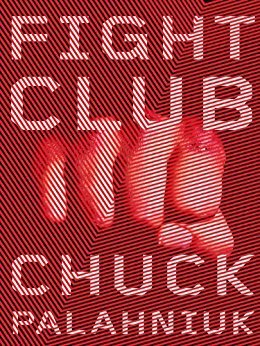
Dune
This is yet another one of those books I had put off, one of those classics I had deferred after hearing so much buzz about: movies, video games like Command&Conquer, and a whole lot of commotion that seemed too good to be true. “As good as The Lord of the Rings” said Arthur Clarke, one of the pillars of modern SciFi. Really? I thought to myself, not believing it for a second.
The presence of this book was itching at the back of my head, urging me to find out if it was as good as people said it was.
I finally decided to try it out. At first the read was jittery, not easy at all to grasp it’s simple-complex narration that uses solid sentences charged with meaning and depth. Gom jabbar, the word has lingered in my mind ever since. Muad’Dib, the name has stayed with me after a long yet fruitful read.
I was stunned, struck by surprise after surprise to find such a deep, great, amazing read within my grasp. I could not believe the complexity, the details of a world so crude, raw, and hostile as Dune, and yet, so promising. The Little Makers, the Worms, the Fremen, CHOAM, the universe within Herberts’s universe is vast and hopefully youthful, full of a breeze profound enough to stay, to linger, such that I hold Dune as one of the greatest books I’ve read, ever.
Perhaps it’s what happened to me after reading Dune. I was sad, terrified of reading something subpar. I got over it, but never stopped wishing I was back with Lady Jessica, Paul Muad’Dib, the profound yet simple-natured culture of the Fremen. I don’t believe this book needs neither more credibility nor reviews to convince the world that it is worth your while. It has earned its place in the cosmos of literature and beyond.
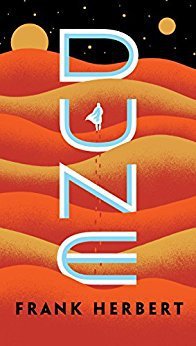
Steelheart: The Reckoners
Steelheart, by Brandon Sanderson
To generate a great fiction book you must first layout the rules of the world you wish to create or distort. Once the rules and principles have been rooted, it is world-crafter’s obligation to stay true to those rules while fashioning the world, while creating and disjointing characters.
Steelheart starts off by a tragic loss. A kid looses his father to the hands of an epic. But what is an epic? In the rules of the world created by Sanderson, the world fell to shambles when Calamity, our beloved Sun, was modified. The modification gave some humans corky powers. But curiously, with each power granted, a very unspecific weakness in relation to the power tagged along. A weakness can be something as simple as a specific time of the day, or something as ridiculous as a joke. This makes the task of defeating epics a whole epic in itself. To find out an epic’s weakness, one must observe and study the individual. At any rate, so are the rules of the world.
I enjoyed this audiobook very much. I would go about calling it a literary achievement. I would, however, call it an awesome-amazing-epic-adventure! You have the weapons, the high-tech, the fights, the mass destruction, the meticulous planning to take down epics, etc.
I also enjoyed the narration. It was excellent. The character development is solid, each one of them having very specific nuances in language, gait, body movements, etc.
I would recommend this book for anyone looking for a good sci-fi, fiction story. It is loads of fun, full of surprises, and enjoyable to listen to at any time.
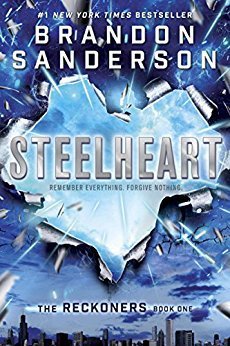
The Things They Carried
One thing is to imagine war. Another is to actually live it. You might know what war is like from other’s experience, documentaries, etc.; but it’s never quite the same. There is nothing like a first hand narration of a story so true it becomes fiction. This is the case of Tim O’Brien’s story: The Things They Carried.
A war story is believable, says O’Brien, if the story is so far-fetched you’d have difficulty believing it. Because it so unreal, so unbelievable. A true war story is never heroic or positive, it never ends with greatness or the immaculate. It ends with sorrow, loss, and lack of something you lost within you, forever lost.
This is true for The Things They Carried. Young men once dreamed a dream they lost, it was lost within a maze of gunfire. Young men traveled abroad to find what was promised to be the sacred fight for freedom to find a prison. The prison found was not physical. It was a soul so tangled with itself it became a knot, an unrecognizable thing.
At the heat of the battle, when the most perilous is to be outlived a man seems to be at a crossroads. It lasts for seconds, it seems. Precious seconds where you either kill some inner portion within you that sets you free and into the fire-fight, or you lose yourself and whither with the fleeting second.
O’Brien’s recounting is poetic in nature. It is a story that has two truths within it. He says he will tell you the war truth and the story truth, both of which happened. They either happened in Vietnam or in some wild dream.
O’Brien dives into the morality of each encounter during his experience during the war and juices it. The product is not nice, it’s not savory; it is, however, chaotically beautiful. It is cruel, raw and despicable. It is melodic, enchanting and poetic. This feature is further highlighted by Bryan Cranston’s performance during the narration.
The characters-both real and fictitious-are profound. Each member of the platoon has a mission, a talent, a vice, a disgrace he hides, a joy he exposes, a fear he loathes, and some have a unique way of dying. Death is ugly, despicable, arithmetically horrible. Yet O’Brien, as he narrates such ugliness, brings out the chaotically-beautiful.
It has been several days since I finished listening to the audiobook. It still lingers in my mind. I remember Rat, Kiowa, Tim, and other members of the platoon as I walk and go about my daily endeavors. I can imagine these young men marching, suffering, fearing, losing their minds, gaining their spirits. It is indeed one of those special books that will forever stay with you. This is a literary achievement, of a war story told in such a way it has two truths, two sides, two possibilities of which only one truly unfurled in the battlefield.
The cover art may dissuade most readers from this book since you might think it’s just another war story. It is not. It is the innermost and profound experience of a young soldier midst chaos, midst insanity; it is the cry of a soul betrayed by a promise. It is a man’s morality being purged and defended, it is pain in every sentence, it is poetry, it is inspiring.
This book is not just another war story. It is the deep-rooted moral-dilemma behind unfounded killing, behind warmongers who feast from blood-spilling. It is the story of a man who lost himself, gained himself, but never quite got back the entirety of what he lost in the chaotic blend of war.
He lost friends, but most important, he lost friendship. Concepts were killed by the decay of ideals. Principles were broken by the relentless exposure to reality.
At the end of the audiobook the author narrates a series of letters in the nature of the impactful. I was blown away by the raw description of emotion, of dignity raped by insanity. His narration is profound, it instils in your mind the casuistry behind puppeteers who command youngsters into battle to do the dirty work of killing. War achieves nothing but loss and remorse, regret and desolation.
This is a literary achievement.
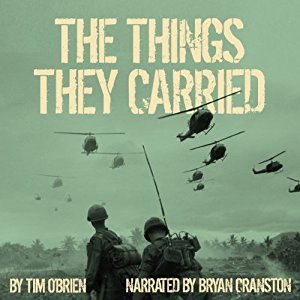
Bushido, the code of the warrior
Bushido.
This is the soul of the warrior, the principles that define a knight in Japan. He is called a Samurai. It is an honor to be called for such a duty, it is of great honor both to the individual in question and his family. He will donn the armor, carry the blade that can split iron like warm butter.
Like many reviews already published about Bushido and its code of virtues, I also will comment on why it is valuable to read such book. I read this book because I’ve always had a curiosity to understand the mystical hue around the samurai. They are war heroes, poets in nature. To understand the nature of bushido, I learned, is to understand the nature of a nation, the adherence to a code of honor and virtues.
It is made aware that bushido may only exist in feudalism. In spite of being virtuous, a warrior of the Samurai class lack but one virtue, which is impossible to achieve given the fact that it is by obligation that a Samurai never question his commands. He must give in his life for his superior. He must vow to defend him until death separates the warrior from the master. A samurai then, may never acquire individuality. He will always be a slave to the set of principles dictated by a master who he serves.
It was important to me to understand these principles. It was also interesting to compare the bushido code to modern society, not only in Japan but the world itself. Who, I wonder, has to vow to obey orders under all circumstance? I pondered upon this for awhile when it hit me. The military regimen of X or Y country.
Of course a military regimen functions in accordance to principles similar to feudalism. There is a rank which must, by all costs, be respected. Orders must be obeyed. Thus, the logic, rational mind of an individual is forsaken for the sake of the superiors, self-righteously, presume to know better than his subordinates. Much repsonsibility relies on this office of commanding men to their possible death. Is it not immoral to decide, whilst on a chair, if X or Y warrior should become an unnamable unit on a chess board, a battlefield?
It is a very sensitive subject, I agree. I invite all readers to read the code of the warrior, bushido. I invite you to linger on what becoming such a warrior means. To be virtuous in one manner does not mean you are virtuous as a whole. There are virtues regarding yourself in respect to your interaction with others; and then there is the virtue of an interaction with yourself. This is the moment to refer you to the book written by Ayn Rand: The Virtue of Selfishness.
Is there a code where a warrior may act virtuous in all manners? Perhaps. Are the heroes we read about and watch in movies virtuous in all manners possible? Who would be the perfect soldier? Are mercenaries better than soldiers under allegiance to a superior chain of command?
[image error]
Ender’s Game
The three premises that make this book a masterpiece (aside from being excellently executed):
1. To wage war detached from death:
The problem of waging war detached from death is not measuring the damage you perpetuate. Destruction without consequence is already in our midsts, where war is waged in a room, thousands are killed who appear as a number rather than human beings with a personal identity. In this book, Ender destroyed a whole species feeling reprimands from his superiors rather than the self-induced consciousness telling you something is nor right.
2. It matters how you win:
Winning without limits to the means you’d use creates a big blind spot on the morality behind the methods in question. Of course, if argued that it’s either them or us, I guess you’d do about anything to defeat the enemy, even if it means genocide.
3. Your end-result as a human being is not important for the military. Once you accomplish a given task, you’re expendable (Disposable Heroes, quoting Metallica!):
Trained to become a war hammer, Ender is faced with the immorality of having been used for an ulterior motive without his consent. Having had the choice, it is clear he would’ve taken another course to affront the Formics threat. Once he had been used, the military is faced with two problems:
a. You pissed off your best weapon, which might turn on you and destroy you (the weapon you created knows all your weaknesses, mind you!)
b. The commanders following your weapon of choice will doubt your methods. Civil war would be at hand!
Conclusion:
This book is gripping from the beginning to the end. The main character is a hero that will be remembered for a long time. To keep this review short, I will add that you will most certainly enjoy this masterpiece in any mode you wish to consume it.
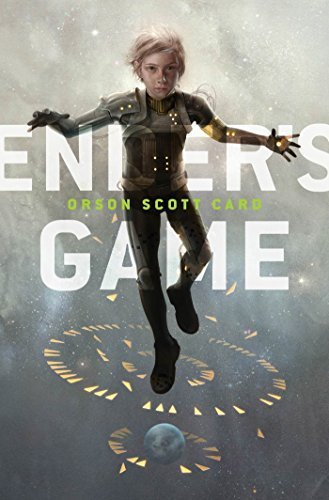
The Forever War
I have found few books of hard Sci-fi adhering to the consequences of traveling near light-speed. Collapsar jumps might take a few months at most in Haldeman’s futuristic novel. Relativity kicks in, making Mandella suffer the consequences of seeing a changed Earth when he comes home after being drafted in the early 1980’s (he comes back hundreds of years after due to relativity). It’s a great read, up until the last 15% of the book where the book turns tangential in nature. It threw me off a bit, making the last few pages difficult to digest after a gripping read.
In the midst of the war against the Taurans, Earth is faced with a dystopian government, which adds the true punch to this time-traveling sci-fi novel. Earth is discombobulated, making living a civilian life on Earth completely unbearable. The best way to earn a decent living is by enlisting in the Army. If you leave the army, a taxation of 95% over your earnings is applied. The colonization of other planets, like Heaven, creates of this new dream-like place a true utopia. I guess we all end up dreaming of a place where we can start all over again, but with the vantage of technology.



